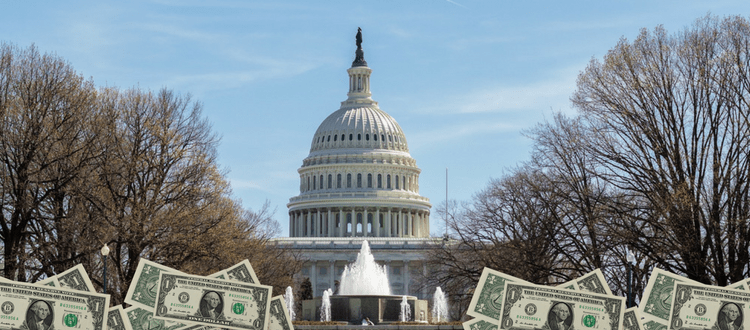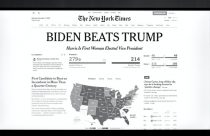U.S. Federal Budget to Boost Research Funding

After months of debate, U.S. Congress has finally passed a 1.3 trillion USD 2018 budget bill. The news has followed after the year-long negotiations on the science budget. The initial US budget for 2018, proposed by President Trump, called for large cuts in funding many research programs and science agencies. However, the content of the final bill came as a happy surprise to the science and research communities. Let us learn about the science budget in details.
After Months of Doubt, a Windfall for Scientists
The budget negotiations dragged on for over a period of several months, resulting in two government shutdowns. This had left scientists fearful for the future of their work. Finally, with a third government shutdown looming, Congress made a deal and President Trump signed the budget into law. Before the budget was revealed, many researchers and agencies expected cuts to their funding. President Trump’s blueprint for the 2018 budget cut the funding for EPA by 31% and the Office of Science in the Department of Energy (DOE) by 17%. Grant awards were also under scrutiny, which would have caused universities to lose out on jobs and infrastructure improvements. Researchers grew increasingly nervous as the negotiations went on.
However, the final budget boosted the funding for the Office of Science by 16%. The National Science Foundation also got a raise of 295 million USD, NASA an increase of 457 million USD and the National Institutes of Health an increase of 3 billion USD in their respective funding. The EPA also maintains its current funding levels. These figures mean that scientist can breathe a sigh of relief, at least until the 2019 budget comes up for negotiation in September.
What Does this Mean for Researchers?
Numerous research projects, programs, and initiatives will benefit from this surprise windfall in funding. Overall, it is estimated that R&D spending in 2018 will reach 176.8 billion USD. The Office of Science programs related to advanced fields of research will benefit greatly from this new budget. These include scientific computing research, fusion energy sciences, nuclear physics, biological and environmental research, biofuels and climate simulation, high energy physics, and basic energy sciences. Basic Earth Sciences covers research in fields like chemistry, materials science, condensed matter physics, and related fields, and also funds DOE’s x-ray synchrotrons and neutron sources.
Projects that had been put on hold while Congress debated the budget can now go forward. These include a project to rebuild an x-ray synchrotron at Argonne National Laboratory in Lemont, Illinois. Six of the ten “Big Ideas” proposed in 2016 by the NSF are also slated to proceed.
Increased funding for the NSF also means more money for educational scholarship and fellowship programs. The Robert Noyce Teacher Scholarship Program, which aims to fund undergraduates studying to become science teachers, received an additional 3 million USD. Another program targeting Hispanic-serving institutions got an extra 30 million USD. NSF had earlier proposed cutting off the funding to its reputable Graduate Research Fellowship. With the new budget,Congress is funding it at the same level in 2018 as it had in 2017.
Responses from the Research Community
The research community is both surprised and pleased at the announcement. Thom Mason, vice president for laboratory operations at Battelle in Columbus and a former director of Oak Ridge National Laboratory in Tennessee, called it “amazingly good news”. According to him, it was “beyond anything [he] expected”. Matt Hourihan also has a similar opinion. He analyzes U.S. science spending patterns for AAAS (publisher of ScienceInsider) in Washington, D.C. According to him, the budget has some “silly good numbers”. He and his colleague David Parkes estimate that this budget is the largest year-on-year increase for science funding after a long time.
What do you think of the new budget passed by Congress? Being a researcher, how do you think it will benefit you? Please let us know your thoughts in the comments section below.








